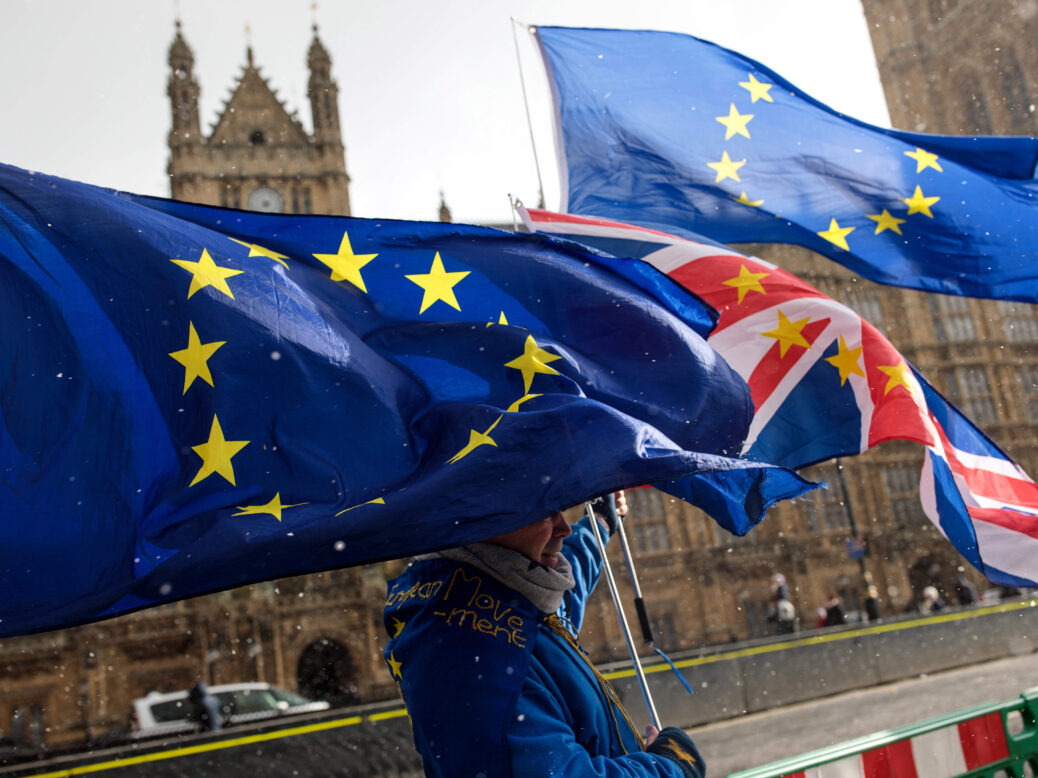
British pro-Europeans are starting to sound like Corbynsceptics, and not in a useful way.
A useful way would be to realise that the Labour leader’s political project doesn’t involve saving the United Kingdom’s membership of the European institutions and that he has to be worked around, not appealed to. The only appeal that will have any traction in Jeremy Corbyn’s inner circle is that the numbers exist in parliament to defeat the government on European issues, which is why Corbyn has moved his position on the customs union but hasn’t on the EEA.
But instead they are behaving in a way that is unnervingly similar to Corbynsceptics in the first year of Jeremy Corbyn’s leadership. You have the theories that actually, when you think about it, Leave/Corbyn didn’t really win. Everyone involved is too embarassed to remember but it was for a while commonplace to hear Labour MPs and prominent activists argue that Corbyn had “only” received the votes of 49.5 per cent of members in his first landslide and that this showed that the will of Labour members was for a Labour leader other than Corbyn. Now Remainers talk about cheating by the Leave campaign and Russian interference.
The problem is that there is no evidence that Russian cheating influenced the outcome and even if it did, no Leave voter is going to ever, ever turn around and say “I now accept that I was fooled by Russian Twitter bots. I guess I’m going to vote Remain”, because the nature of human affairs is that people don’t like to admit fault. Any path to reversing the Leave vote has to be about finding ways for Leave voters to change their mind without admitting fault – rather than pointing out various ways that Leave voters were too stupid to make the right decision the first time around.
They over read polls showing scepticism among Labour members about how Corbyn was handling the Labour leadership, just as organised pro-Europeans are drawing false comfort from the fact that, if you shape the question in the right way, voters can be persuaded to narrowly tell pollsters that perhaps another referendum wouldn’t be the worst idea in the world. They are ignoring the fact that if you frame the question neutrally or in the slanted way that the Brexit press will do, another referendum is strongly opposed by most people.
Having convinced themselves that the first defeat wasn’t really legitimate and that reversing it would be simplicity itself, Corbynsceptics then triggered a second vote that they had no realistic way to win thanks to the choices they had made in the year between the defeat of 2015 and the defeat of 2016.
Similarly, Remainers are putting a lot of energy into a second vote when they have no new argument against British opposition to the free movement of people beyond making a series of claims about the possibility of “reforming” free movement that are simply not true; no plan for the fact the majority of the Conservative party and high profile Labour frontbenchers will be viscerally opposed; and when many of the warnings made by George Osborne have not come true, making it harder to sustain the economic case for membership than it was last time.
The ultimate reward for Corbynsceptics was a more emphatic version of the 2015 defeat that shattered their power within the Labour party, perhaps irretrievably. If the stars align and a third referendum comes about, on this trajectory, you wouldn’t bet on British pro-Europeans not ending up in a similar position as far as the country as a whole goes.
Which is not to say that pro-Europeans are destined to lose the next referendum: Corbynsceptics weren’t destined to lose the next Labour leadership election in 2015 either. But the choices they made before the contest started meant they had no chance. Remainers are running out of time to avoid a similar fate.






